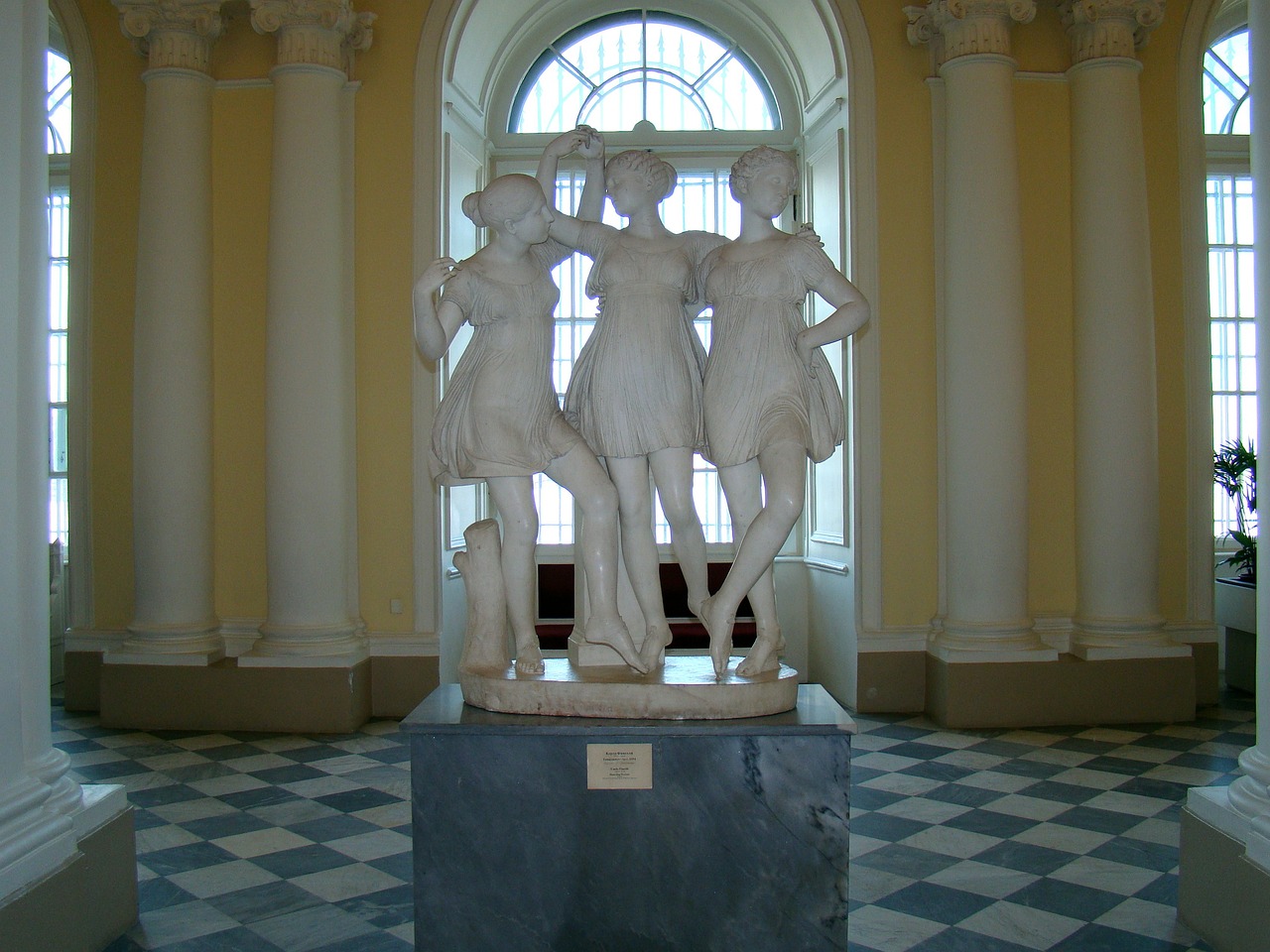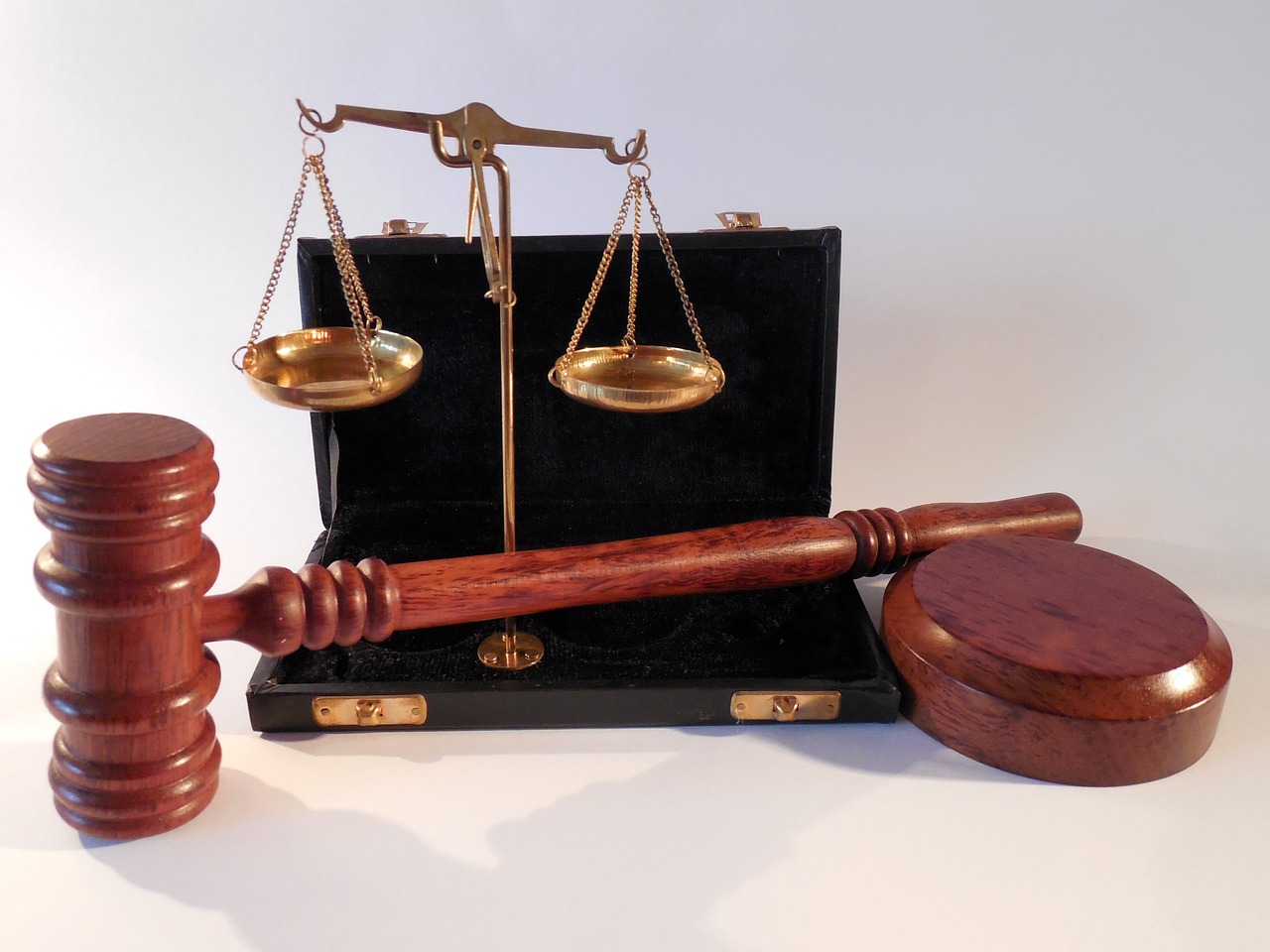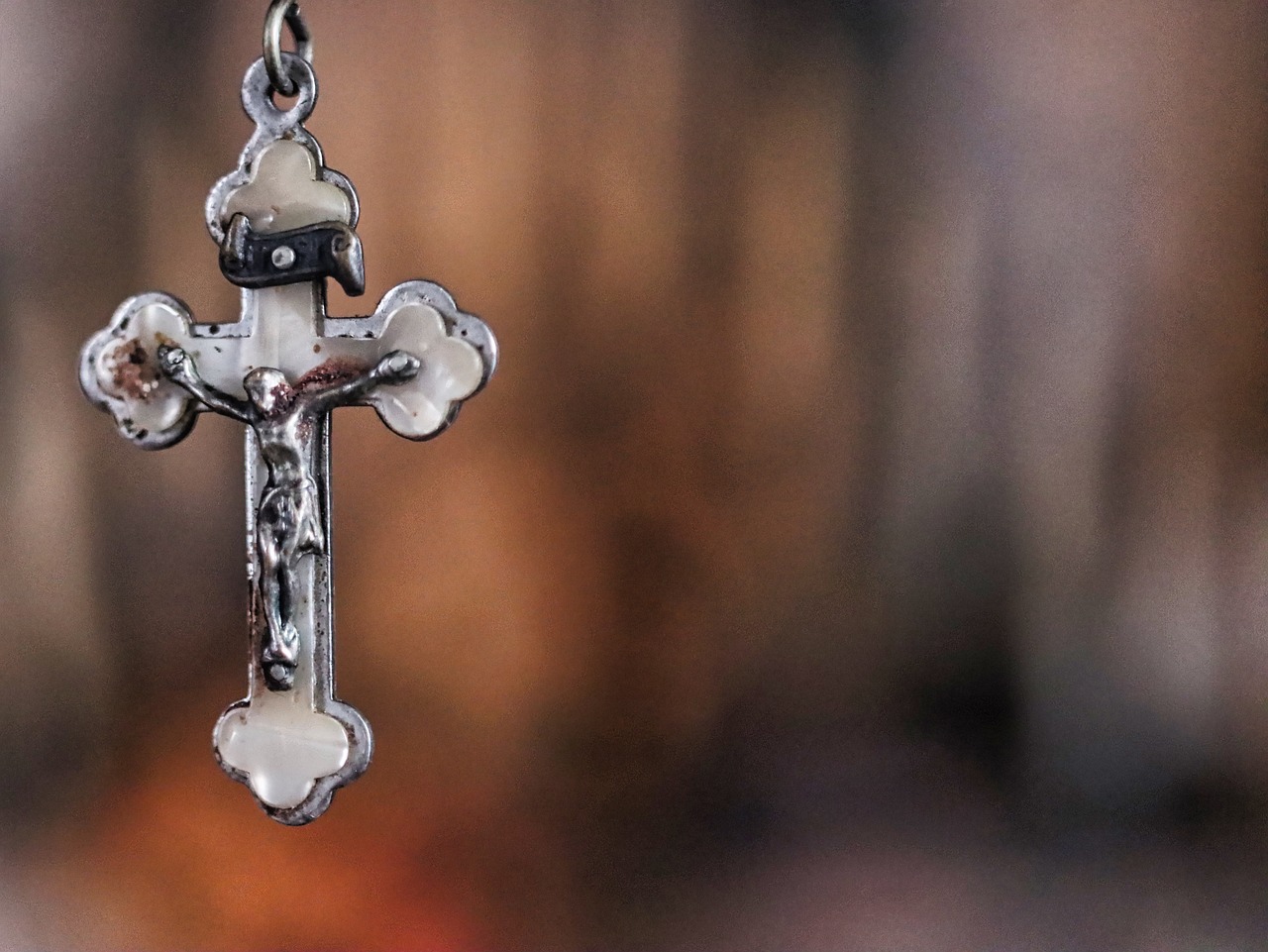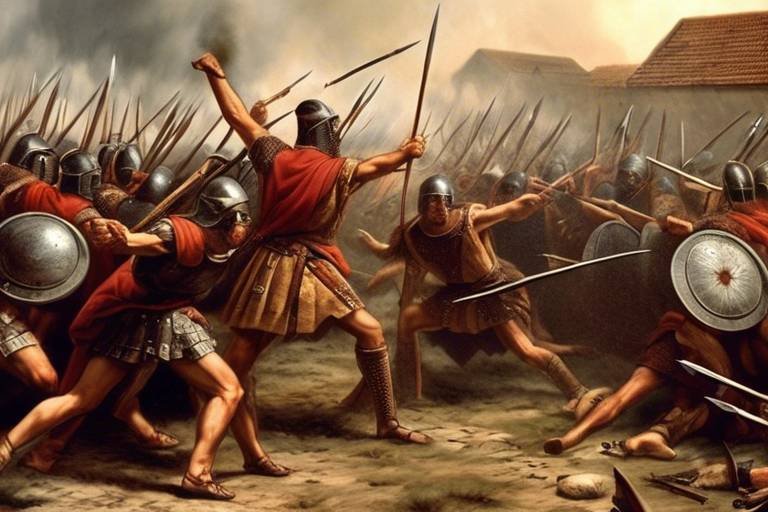How Ancient Religions Addressed Moral and Ethical Questions
Ancient religions have always been a source of wisdom and guidance when it comes to navigating the complex terrain of moral and ethical dilemmas. These belief systems, rooted in centuries-old traditions and teachings, offer valuable insights into how individuals should conduct themselves and interact with the world around them.
One of the fundamental approaches taken by ancient religions in addressing moral and ethical questions is the emphasis on obedience to divine commands. Many belief systems believed that ethical principles were directly derived from the gods or a higher power, serving as the foundation of morality.
In contrast, some ancient religions, such as Hinduism and Buddhism, focused on the concepts of karma and reincarnation to shape moral behavior and ethical decision-making. The idea of actions having consequences in this life or the next underscored the importance of leading a virtuous and ethical life.
Ancient philosophies like Confucianism and Stoicism took a different route by highlighting the importance of cultivating virtues and living a righteous life. These teachings emphasized the role of personal character in achieving moral excellence and ethical conduct.
Moreover, community values and social harmony were paramount in several ancient religions, guiding individual actions and promoting ethical behavior within society. The well-being of the community was often seen as intertwined with personal moral choices.
Justice and fairness were recurring themes in the teachings of ancient religions, offering guidelines on how individuals should uphold these principles in their interactions with others and in society at large. These principles formed the backbone of ethical behavior.
Ancient religions also provided specific ethical guidelines for personal conduct, outlining virtues to cultivate and vices to avoid. These guidelines served as a roadmap for individuals to lead a morally upright life and navigate the complexities of ethical decision-making.
The interplay between free will and determinism was a complex issue explored by ancient religions, delving into the extent to which individuals could shape their moral choices within the larger cosmic forces at play. This philosophical dilemma continues to intrigue thinkers to this day.
When faced with moral dilemmas and ethical gray areas, ancient religious traditions offered various approaches to help individuals navigate these challenging situations. These insights provided valuable guidance on how to make difficult decisions in ambiguous circumstances.
The legacy of ancient moral and ethical teachings continues to resonate in contemporary ethical frameworks, offering timeless wisdom on human nature, societal values, and the pursuit of a meaningful and virtuous life. By delving into the wisdom of ancient religions, we can gain a deeper understanding of ourselves and our place in the world.

Role of Divine Command
In ancient religions, the role of divine command was paramount in shaping moral behavior and ethical standards. Believers were expected to adhere to the directives and teachings believed to have originated from a higher power, whether it be gods or a singular deity. The concept of divine commands served as the foundation of morality, providing a framework for individuals to understand right from wrong and to act accordingly.
Through divine command, ancient religious traditions sought to establish a sense of order and purpose in the world, emphasizing the importance of obedience and reverence towards the divine. The notion that ethical principles were bestowed by a higher authority instilled a sense of duty and responsibility among followers, guiding their actions and decisions in accordance with the will of the divine.
Divine commands were often communicated through sacred texts, prophets, or spiritual leaders, serving as a moral compass for individuals to navigate the complexities of life. The belief that adherence to divine directives would lead to spiritual growth, righteousness, and ultimately, salvation, reinforced the significance of following these moral guidelines.
While the concept of divine command varied across different ancient religions, the underlying principle of aligning one's actions with the will of the divine remained a common thread. By emphasizing obedience to higher authority and divine teachings, these belief systems aimed to instill a sense of morality, ethics, and spiritual fulfillment in the lives of their adherents.

Concept of Karma and Reincarnation
When exploring the concept of karma and reincarnation in ancient religions, we delve into a profound understanding of how these beliefs shaped moral behavior and ethical decision-making. In Hinduism, the idea of karma, the law of cause and effect, dictates that one's actions in this life will determine their fate in future lives. This concept serves as a moral compass, encouraging individuals to act in accordance with righteousness and virtue to ensure a favorable rebirth. Reincarnation, the belief in the cycle of birth, death, and rebirth, offers the opportunity for spiritual growth and evolution across multiple lifetimes.

Teachings on Virtue and Righteousness
Ancient philosophies like Confucianism and Stoicism placed a strong emphasis on the teachings of virtue and righteousness as fundamental principles for leading a moral and ethical life. These belief systems believed that cultivating virtues such as wisdom, courage, justice, and temperance was essential for individuals to achieve moral excellence and uphold ethical conduct in their interactions with others.
Confucian teachings, for example, focused on the importance of cultivating moral character through self-improvement and the practice of benevolence, righteousness, propriety, wisdom, and faithfulness. These virtues were seen as essential for maintaining social harmony and order within the community, emphasizing the interconnectedness of personal ethics with the well-being of society as a whole.
Similarly, Stoic philosophy emphasized the pursuit of virtue as the highest good, advocating for living in accordance with nature and reason to achieve inner tranquility and moral integrity. Stoics believed that true happiness and fulfillment could be attained by aligning one's actions with virtuous principles, regardless of external circumstances or worldly temptations.
Both Confucianism and Stoicism promoted the idea that ethical behavior stemmed from a deep understanding of one's place in the world and a commitment to upholding universal moral values. By embodying virtues like compassion, honesty, and integrity, individuals were encouraged to strive for excellence in their character and conduct, contributing to the greater good of society and fostering a sense of moral responsibility towards others.

Importance of Community and Social Harmony
In the ancient world, the concept of community and social harmony held significant importance across various religions and belief systems. It was believed that individual actions were interconnected with the well-being of the community, emphasizing the collective welfare over personal interests. Communities were seen as integral units where each member played a vital role in maintaining harmony and order. The mutual support and cooperation within a community were considered essential for fostering a sense of belonging and unity among its members.
Ancient religious teachings often highlighted the interconnectedness of individuals within a community, promoting values such as compassion, empathy, and respect for others. These values served as the foundation for building strong social bonds and fostering a sense of shared responsibility towards one another. The emphasis on community and social harmony encouraged individuals to contribute positively to the collective welfare, thereby creating a supportive and cohesive societal structure.
Furthermore, the promotion of social harmony within ancient belief systems aimed to reduce conflicts and promote peaceful coexistence among diverse groups. By prioritizing the common good and fostering understanding between different members of society, ancient religions sought to create a harmonious environment where individuals could thrive and prosper together. The concept of community not only provided a sense of security and belonging but also instilled a sense of duty towards upholding shared values and promoting mutual respect.
In essence, the emphasis on community and social harmony in ancient religions served as a guiding principle for ethical behavior and moral conduct. By recognizing the interconnectedness of all individuals within a community, these belief systems underscored the importance of cooperation, empathy, and solidarity in fostering a harmonious and thriving society. The legacy of valuing community and social harmony continues to resonate in modern ethical frameworks, reminding us of the enduring significance of collective well-being and mutual support in shaping a more compassionate and inclusive world.

Views on Justice and Fairness
Views on justice and fairness were central to many ancient religions, shaping their ethical frameworks and guiding principles. In the teachings of various belief systems, the concept of justice was often intertwined with notions of balance, reciprocity, and moral accountability. For instance, in ancient Egyptian religion, the goddess Ma'at represented the cosmic order and harmony, emphasizing the importance of truth, justice, and righteousness in both personal conduct and societal interactions. Similarly, in Greek philosophy, the idea of justice was closely linked to the concept of virtue, with philosophers like Plato and Aristotle exploring the ethical dimensions of justice in relation to the greater good of society.

Ethical Guidelines for Personal Conduct
When it comes to ethical guidelines for personal conduct, ancient religions offered a wealth of wisdom and insight on how individuals should navigate their daily lives with integrity and virtue. These guidelines were not merely a set of rules to follow but a comprehensive framework for cultivating moral character and making ethical decisions in various situations.
Ancient religious teachings often emphasized the importance of virtues such as honesty, compassion, humility, and justice. These virtues were seen as essential qualities to cultivate in oneself in order to lead a morally upright life and contribute positively to the community and society at large.
Furthermore, many ancient belief systems provided clear instructions on how to avoid vices and harmful behaviors that could lead to moral degradation and societal discord. By outlining the consequences of unethical actions and the benefits of virtuous conduct, these guidelines served as a roadmap for individuals seeking to live an ethical and fulfilling life.
One common theme across various ancient religions was the idea of self-discipline and self-awareness in personal conduct. By encouraging adherents to reflect on their actions, intentions, and impact on others, these ethical guidelines promoted mindfulness and accountability in daily interactions.
Ancient religious texts often presented parables, stories, and allegories to illustrate the principles of ethical conduct in practical terms. These narratives served as moral lessons for individuals to learn from the experiences of others and apply timeless wisdom to their own lives.
Moreover, ethical guidelines for personal conduct in ancient religions were not static but dynamic, evolving with changing societal norms and cultural contexts. The adaptability of these guidelines allowed individuals to navigate complex ethical dilemmas and moral challenges with wisdom and discernment.
Overall, the ethical guidelines for personal conduct provided by ancient religions served as a moral compass for individuals seeking to lead a virtuous life and contribute positively to the well-being of their communities. By incorporating these timeless principles into their daily practices, adherents could strive for moral excellence and ethical integrity in all aspects of their lives.

Interplay of Free Will and Determinism
Exploring the interplay of free will and determinism in ancient religions reveals a fascinating philosophical debate that continues to intrigue scholars and believers alike. While some belief systems emphasized the concept of fate and predestination, others underscored the importance of individual choice and agency in shaping moral decisions and ethical conduct.
In ancient Greek philosophy, the concept of fate, or "moira," was intertwined with the idea of destiny, suggesting a predetermined course of events beyond human control. This deterministic view of the universe posed challenges to the notion of free will, raising questions about the extent to which individuals could truly make autonomous choices in the face of cosmic forces.
Conversely, many ancient religious traditions, such as certain schools of Hinduism and Jainism, emphasized the role of karma in shaping individual destinies. The law of karma, based on the principle of cause and effect, posited that one's actions in past lives determined their current circumstances, highlighting the interconnectedness of moral choices and future outcomes.
Within the context of monotheistic religions like Christianity and Islam, the tension between divine providence and human agency led to complex theological discussions on the compatibility of God's omniscience with human freedom. The concept of predestination, as articulated by theologians like Augustine and Calvin, challenged conventional notions of free will while asserting the supremacy of divine will in determining salvation.
Moreover, ancient philosophical schools like Stoicism grappled with the idea of fate as a rational and orderly principle governing the universe, advocating for the cultivation of inner virtue and moral excellence as a means to align one's will with the cosmic order. This harmonious integration of individual agency with universal determinism reflected a nuanced understanding of ethical responsibility and personal autonomy.
Ultimately, the interplay of free will and determinism in ancient religions invites contemplation on the nature of human choice, the limits of individual control, and the moral implications of cosmic forces. By delving into these profound philosophical inquiries, we gain deeper insights into the complexities of ethical decision-making and the enduring quest for moral integrity.

Approaches to Moral Dilemmas and Ethical Gray Areas
When faced with moral dilemmas and ethical gray areas, ancient religious traditions offered various approaches to guide individuals in making difficult decisions. One common approach was the consideration of universal principles and values that transcended specific circumstances. By focusing on overarching concepts like compassion, honesty, and justice, adherents could navigate complex situations with clarity and integrity.
Another approach involved seeking guidance from religious authorities or texts, turning to sacred scriptures or wise leaders for insights on how to address moral challenges. These sources often provided stories, parables, and ethical teachings that offered moral lessons and practical wisdom for everyday dilemmas.
Some ancient belief systems encouraged introspection and self-reflection as a means of resolving moral conflicts. By engaging in contemplation and meditation, individuals could gain clarity on their values, motivations, and the potential consequences of their actions, helping them make ethical choices aligned with their beliefs.
In cases where there was no clear-cut answer, ancient religions promoted dialogue and discussion within the community to collectively discern the most ethical course of action. By engaging in respectful debate and considering diverse perspectives, individuals could arrive at consensus on how to navigate ethical gray areas while upholding shared values and principles.

Legacy of Ancient Moral and Ethical Teachings
The legacy of ancient moral and ethical teachings is deeply ingrained in the fabric of human civilization, shaping our understanding of right and wrong, virtue and vice. These teachings, passed down through generations, continue to resonate in contemporary ethical frameworks, offering timeless wisdom and guidance for navigating the complexities of life.
Ancient religions laid the foundation for moral and ethical principles that have stood the test of time, emphasizing the importance of integrity, compassion, and justice in human interactions. The teachings of these ancient belief systems serve as a moral compass, guiding individuals towards ethical conduct and virtuous living.
Through the lens of ancient wisdom, we gain insights into the universal values that transcend cultural boundaries and time periods. The ethical guidelines set forth by these ancient teachings provide a roadmap for personal growth, social cohesion, and spiritual enlightenment.
By studying the moral and ethical teachings of ancient religions, we gain a deeper understanding of human nature, societal values, and the quest for a meaningful existence. These teachings offer profound reflections on the nature of good and evil, the complexities of moral decision-making, and the pursuit of a life well-lived.
The legacy of ancient moral and ethical teachings serves as a reminder of our shared humanity and the enduring quest for moral excellence. As we navigate the challenges of the modern world, we can draw upon the wisdom of the past to inform our choices, inspire our actions, and uphold the timeless principles of integrity, compassion, and justice.
Frequently Asked Questions
- 1. What role did divine commands play in ancient moral systems?
Ancient religions often emphasized obedience to divine commands as the foundation of morality, believing that ethical principles were derived directly from the gods or a higher power.
- 2. How did the concepts of karma and reincarnation influence moral behavior in ancient belief systems?
In belief systems like Hinduism and Buddhism, karma and reincarnation were central to shaping moral behavior and ethical decision-making, highlighting the importance of cause and effect in one's actions.
- 3. What were the key virtues promoted by ancient philosophies like Confucianism and Stoicism?
Ancient philosophies focused on cultivating virtues such as wisdom, courage, justice, and temperance, viewing these qualities as essential for leading a morally upright life.
- 4. How did ancient religions view the importance of community values in promoting ethical behavior?
Ancient religions often stressed the significance of community values and social harmony in guiding individual actions and fostering ethical conduct within society.
- 5. What guidance did ancient belief systems offer on justice and fairness?
Ancient religious teachings frequently provided guidelines on upholding principles of justice and fairness in personal and societal interactions, emphasizing the importance of treating others equitably.
- 6. How did ancient religions address the interplay between free will and determinism in moral decision-making?
Ancient religions explored the complex balance between individual free will and larger cosmic forces, contemplating the extent to which individuals could shape their moral choices within predetermined circumstances.
- 7. What approaches did ancient religious traditions develop for navigating moral dilemmas and ethical gray areas?
Ancient religious traditions offered various insights and strategies for resolving moral dilemmas and navigating ethical gray areas, providing guidance on making difficult decisions in ambiguous situations.
- 8. How do the moral and ethical teachings of ancient religions continue to influence contemporary ethical frameworks?
Ancient moral and ethical teachings remain influential in shaping contemporary ethical frameworks, offering valuable insights into human nature, societal values, and the pursuit of a virtuous life.



















